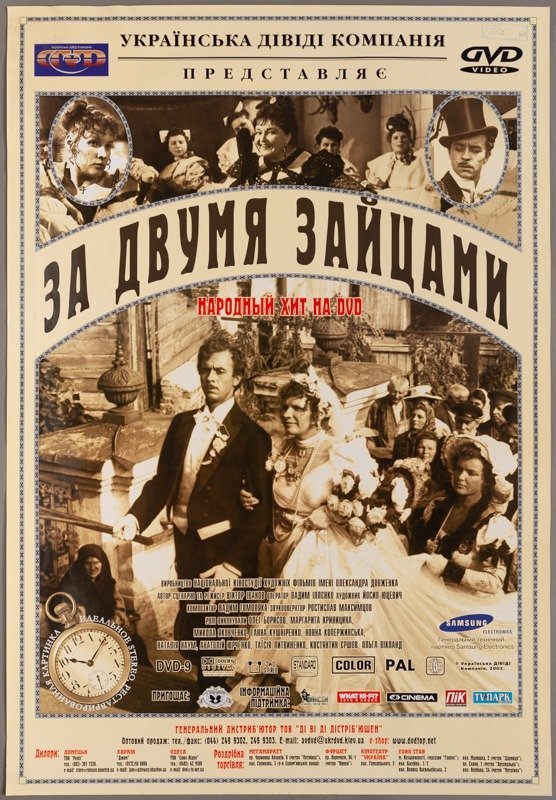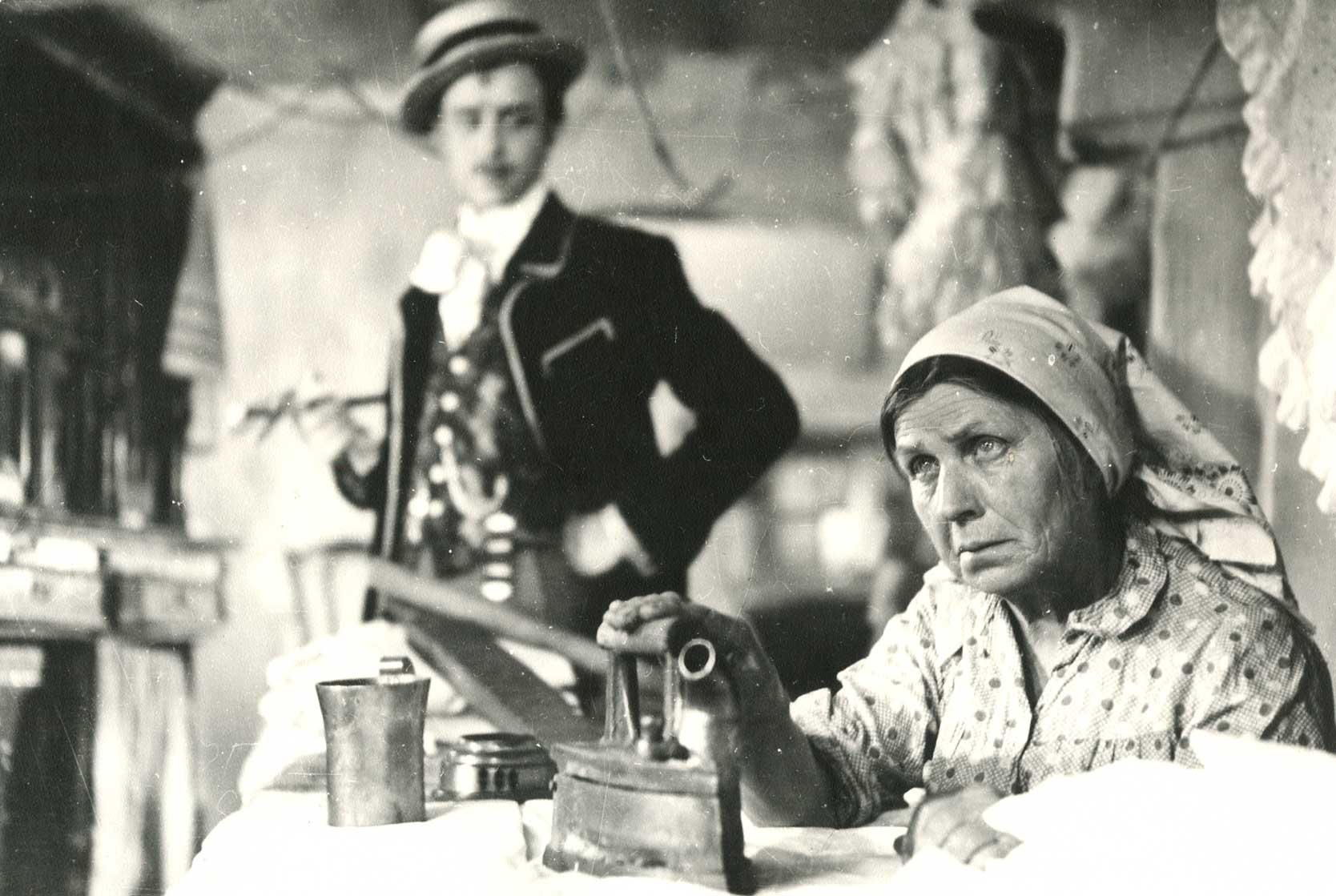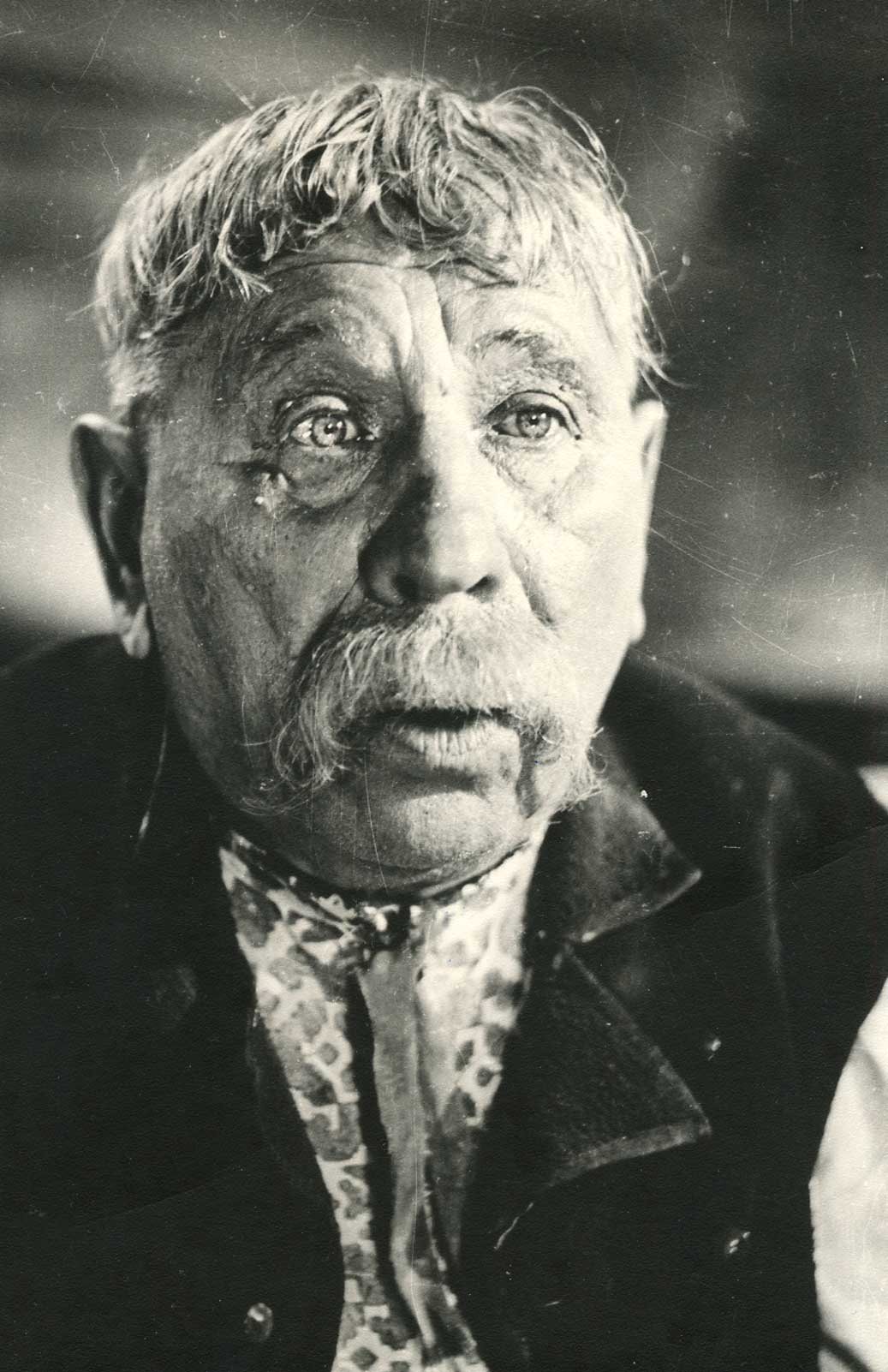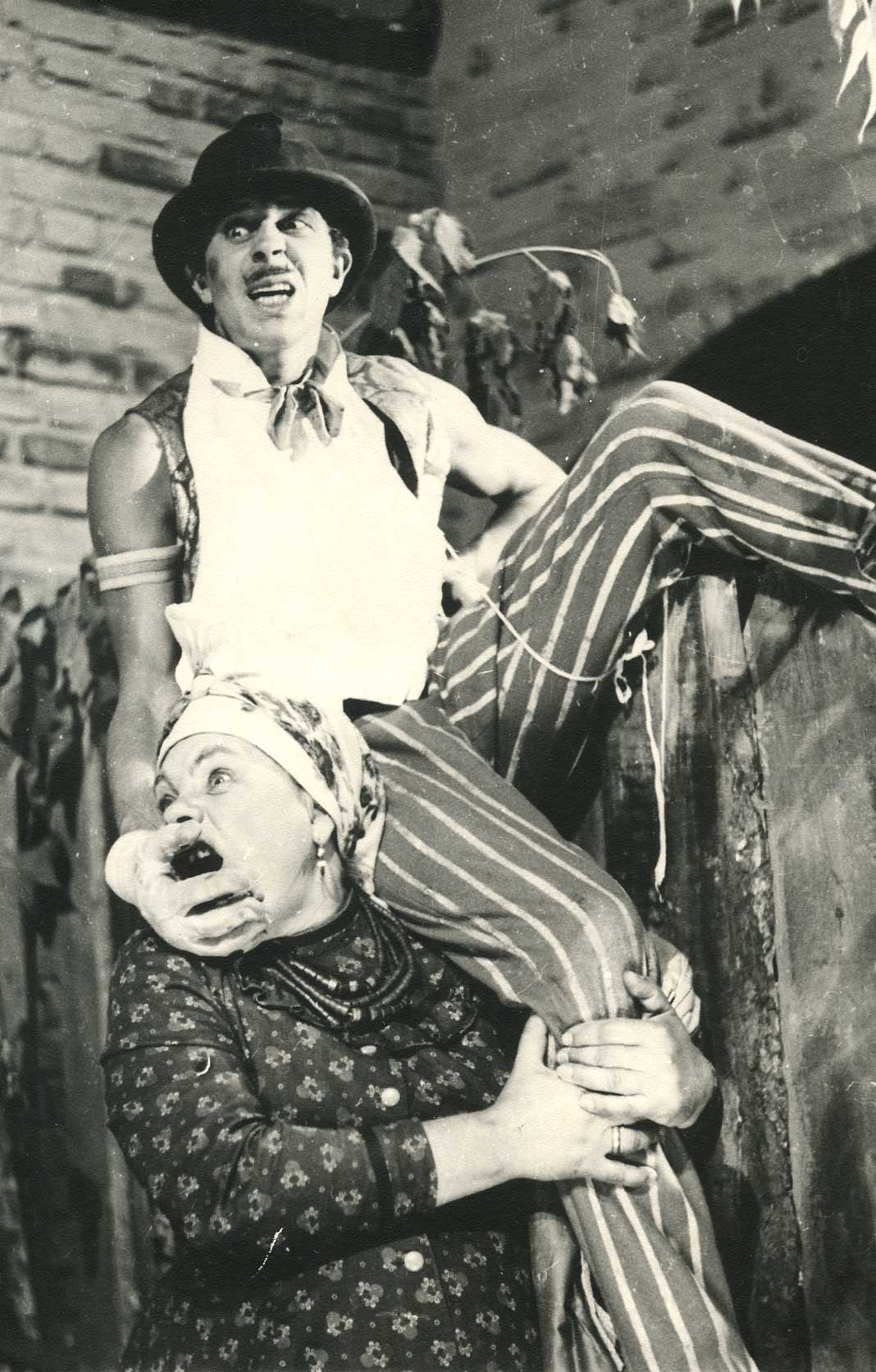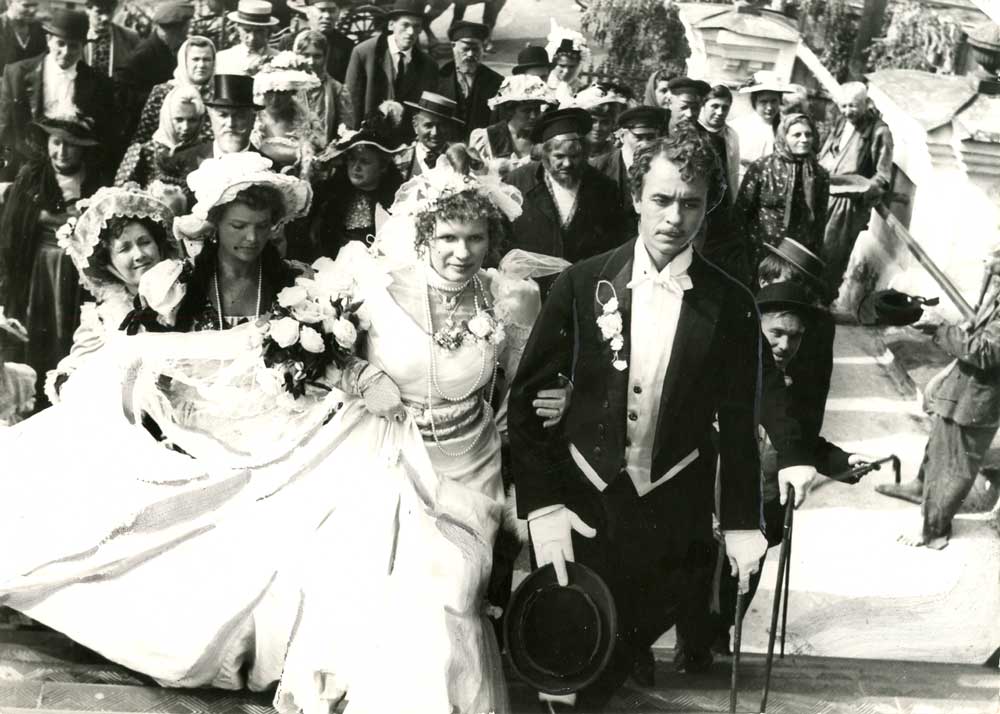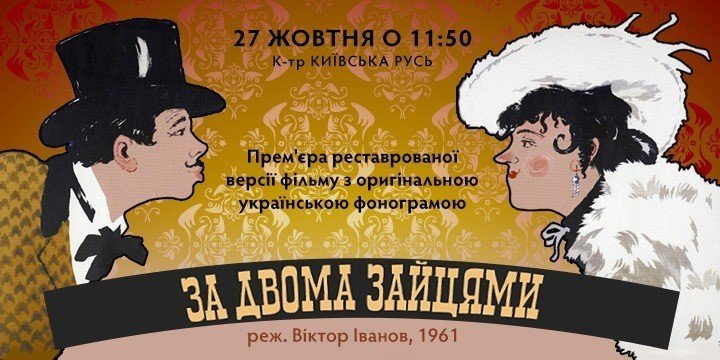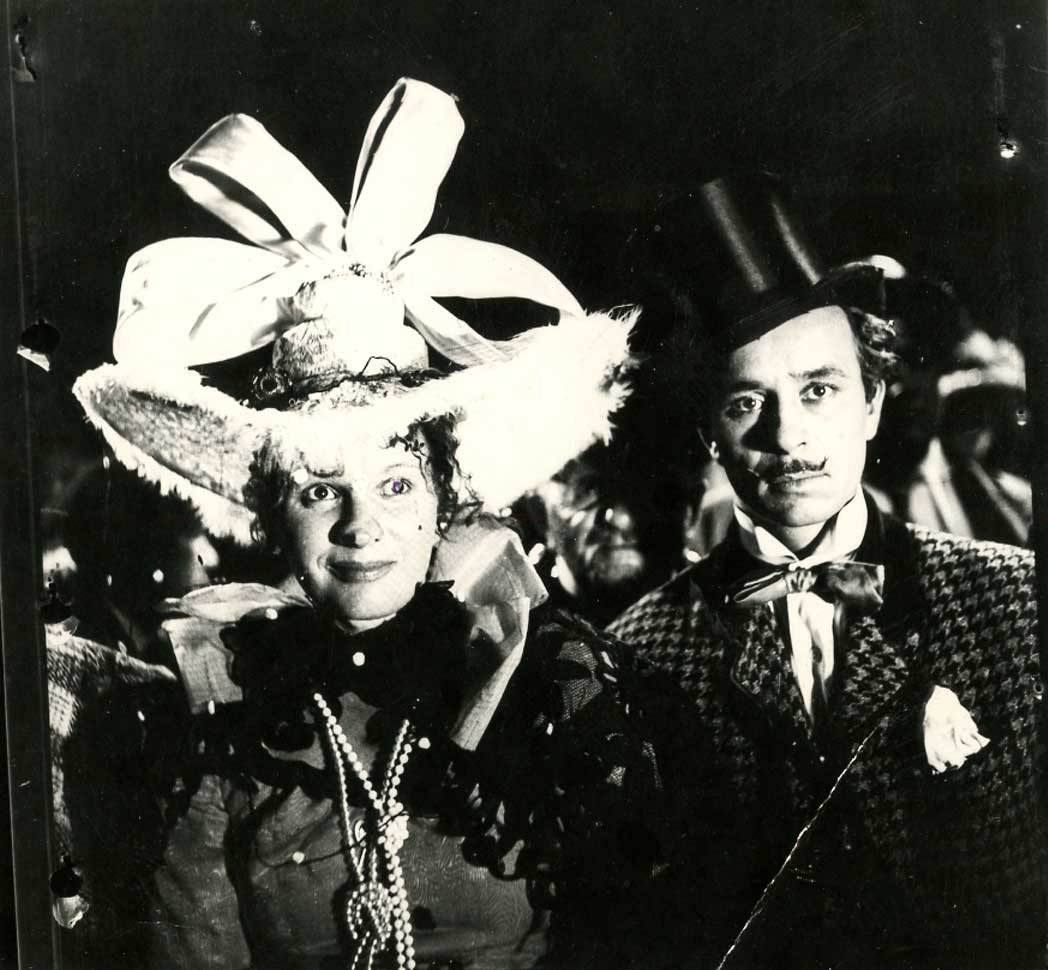
Chasing Two Hares / Za dvoma zaitsiamy
1961
Ukrainian SSR
Oleksandr Dovzhenko Film Studio
77 min
Viktor Ivanov
Viktor Ivanov
Vadym Illienko
Oleg Borisov, Marharyta Krynytsyna, Mykola Yakovchenko, Hanna Kushnirenko, Nonna Koperzhynska, Nataliia Naum, Anatolii Yurchenko, Kostiantyn Yershov, Taisiia Lytvynenko, Olga Viklandt
A barber from Kyiv, Svyryd Holokhvostyi, does not lack pretense and ambition, but he does chronically lack money; thus he is planning a marriage of convenience. His choice is the “properly-educated” Pronia Prokopivna who has a dowry of 10,000 coins, but his heart wants the quiet beauty Halia. The culmination of this silly love triangle will be witnessed by all of Kyiv.
Director Viktor Ivanov, a student of Eisenstein and Dovzhenko, devoted most of his professional life to the comedy genre (Adventures with a Tarapunka Jacket (1955), Shelmenko-denshchik (1957), Keys from the Sky (1965), Veseli Zhabokrychi (1973)). Chasing Two Hares completes Ivan’s trilogy of adaptations of playful Ukrainian literature. The other two are Shelmenko-denshchik which was based on the work by Hryhorii Kvitka-Osnovianenko, and the film One Hundred Thousand which was based on a play by Ivan Karpenko-Karyi.
Chasing Two Hares was planned to be a simple production based upon an “uncontroversial” plot, and it became an unexpected hit. Regretfully, for many years the entire Soviet Union, including the Ukrainian Soviet Republic, watched the film dubbed in the Russian language; the original Ukrainian track was discovered and restored in the 2010s with the assistance of the Dovzhenko Center.
Chasing Two Hares may be based on classic material, but is by no means out of date. Vadym Ilienko’s camera has expressive freedom, offering a modernist look – almost in the spirit of Ivan Kavaleridze — at the source material.
In the 1960s, Holokhvostyi’s antics probably seemed like a parody of the subculture of the “stylish youth” of the Thaw period. Today, it is clear that this satirical take from the writers of the film (and from the original author of the play, Mykhailo Starytskyi) depicted the “grassroots Russification” of Ukrainian cityfolk. The movie’s cast consists of luminaries of the Ukrainian theater. They shine side by side with unexpected episodic actors, like Kostiantyn Yershov, the quiet thuggish friend of Hoholkhvostyi, who later created the films Viy (1967) and Hrachi (1982).
It is difficult to imagine Ukrainian national cinema without this comedy. The humorous elements of Kyiv’s city life at the end of the 19th century are so vivid here. This is one of the most colorful screen sketches of the city.
